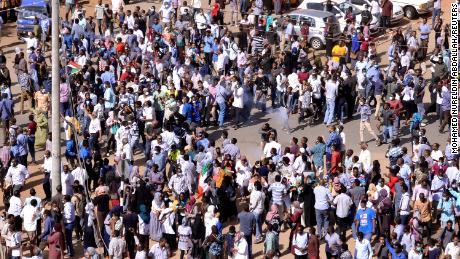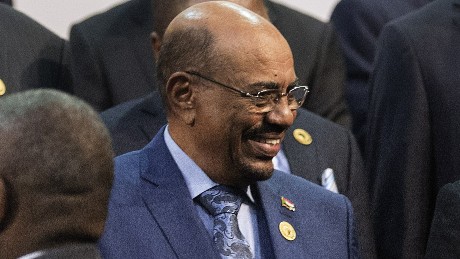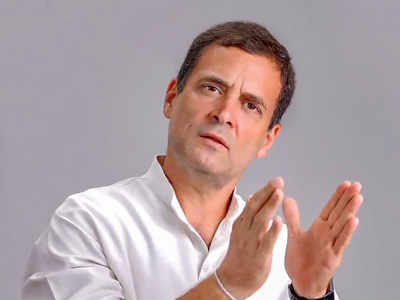President Omar al-Bashir said police had "shown model behavior" and were "conducting their duties with utmost professionalism," in a meeting with officials in the capital Khartoum on Sunday, state news agency SUNA reported.The President also told police to use "as little force as possible," according to a video of the address posted by Turkey's Anadolu Agency. "The goal is not to kill citizens," said Bashir. "The ultimate goal is to maintain the security and stability of civilians."The 74-year-old leader, who has been president for almost three decades and is facing increased calls to step down, also offered to boost police officers' salaries and pensions and support their accommodation, education and health care.His comments came in the wake of deadly clashes that also left 406 people injured, according to Sudan's Minister of Information, Bushara Juma.However, Amnesty International on Monday put the death toll much higher — at 37 — with that number likely to have risen in the last week.  The rights group said security forces had indiscriminately used "lethal force" against "unarmed protesters.""With dozens already dead, the government must rein in this deadly use of force and prevent more unnecessary bloodshed," said Sarah Jackson, Amnesty International's deputy director for East Africa, the Great Lakes and the Horn, in a statement.
The rights group said security forces had indiscriminately used "lethal force" against "unarmed protesters.""With dozens already dead, the government must rein in this deadly use of force and prevent more unnecessary bloodshed," said Sarah Jackson, Amnesty International's deputy director for East Africa, the Great Lakes and the Horn, in a statement. The UN also expressed its concern, with Secretary-General Antonio Guterres appealing for "restraint" and calling on authorities to conduct a thorough investigation into the deaths and violence.
The UN also expressed its concern, with Secretary-General Antonio Guterres appealing for "restraint" and calling on authorities to conduct a thorough investigation into the deaths and violence.
Food hikes spark protest
The anti-government demonstrations have been organized by both grassroots neighborhood protesters and professional unions, including doctors, lawyers, teachers and students, supported by two of the largest opposition parties.The protests against Bashir were triggered by fuel shortages and a spike in food prices that saw the cost of bread double in the past year. Security forces have sought to quash the protests by shooting live rounds and tear gas into crowds of peaceful demonstrators, witnesses have told CNN.In 2010, the International Criminal Court charged Bashir with crimes against humanity, including genocide, related to the Darfur conflict in Sudan.Sudan is oil-rich, but poverty is rife in the country, with many of Bashir's critics attributing its economic woes to widespread corruption.Another round of protests is scheduled Monday on the eve of Sudan's Independence Day.
Security forces have sought to quash the protests by shooting live rounds and tear gas into crowds of peaceful demonstrators, witnesses have told CNN.In 2010, the International Criminal Court charged Bashir with crimes against humanity, including genocide, related to the Darfur conflict in Sudan.Sudan is oil-rich, but poverty is rife in the country, with many of Bashir's critics attributing its economic woes to widespread corruption.Another round of protests is scheduled Monday on the eve of Sudan's Independence Day.
CNN's Yousra Elbagir reported from Khartoum, Nada Altaher reported from Abu Dhabi, Sheena McKenzie wrote in London. Kara Fox contributed to this report.
Original Article
President Omar al-Bashir said police had "shown model behavior" and were "conducting their duties with utmost professionalism," in a meeting with officials in the capital Khartoum on Sunday, state news agency SUNA reported.The President also told police to use "as little force as possible," according to a video of the address posted by Turkey's Anadolu Agency. "The goal is not to kill citizens," said Bashir. "The ultimate goal is to maintain the security and stability of civilians."The 74-year-old leader, who has been president for almost three decades and is facing increased calls to step down, also offered to boost police officers' salaries and pensions and support their accommodation, education and health care.His comments came in the wake of deadly clashes that also left 406 people injured, according to Sudan's Minister of Information, Bushara Juma.However, Amnesty International on Monday put the death toll much higher — at 37 — with that number likely to have risen in the last week.  The rights group said security forces had indiscriminately used "lethal force" against "unarmed protesters.""With dozens already dead, the government must rein in this deadly use of force and prevent more unnecessary bloodshed," said Sarah Jackson, Amnesty International's deputy director for East Africa, the Great Lakes and the Horn, in a statement.
The rights group said security forces had indiscriminately used "lethal force" against "unarmed protesters.""With dozens already dead, the government must rein in this deadly use of force and prevent more unnecessary bloodshed," said Sarah Jackson, Amnesty International's deputy director for East Africa, the Great Lakes and the Horn, in a statement. The UN also expressed its concern, with Secretary-General Antonio Guterres appealing for "restraint" and calling on authorities to conduct a thorough investigation into the deaths and violence.
The UN also expressed its concern, with Secretary-General Antonio Guterres appealing for "restraint" and calling on authorities to conduct a thorough investigation into the deaths and violence.
Food hikes spark protest
The anti-government demonstrations have been organized by both grassroots neighborhood protesters and professional unions, including doctors, lawyers, teachers and students, supported by two of the largest opposition parties.The protests against Bashir were triggered by fuel shortages and a spike in food prices that saw the cost of bread double in the past year. Security forces have sought to quash the protests by shooting live rounds and tear gas into crowds of peaceful demonstrators, witnesses have told CNN.In 2010, the International Criminal Court charged Bashir with crimes against humanity, including genocide, related to the Darfur conflict in Sudan.Sudan is oil-rich, but poverty is rife in the country, with many of Bashir's critics attributing its economic woes to widespread corruption.Another round of protests is scheduled Monday on the eve of Sudan's Independence Day.
Security forces have sought to quash the protests by shooting live rounds and tear gas into crowds of peaceful demonstrators, witnesses have told CNN.In 2010, the International Criminal Court charged Bashir with crimes against humanity, including genocide, related to the Darfur conflict in Sudan.Sudan is oil-rich, but poverty is rife in the country, with many of Bashir's critics attributing its economic woes to widespread corruption.Another round of protests is scheduled Monday on the eve of Sudan's Independence Day.
CNN's Yousra Elbagir reported from Khartoum, Nada Altaher reported from Abu Dhabi, Sheena McKenzie wrote in London. Kara Fox contributed to this report.
Original Article











